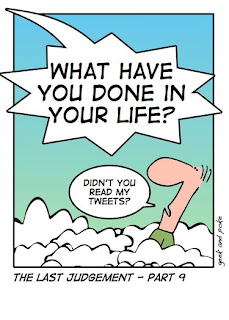Over the past month or so I’ve been getting awesome support and feedback from the community, looking for my next challenge in the business world – thank you friends!
As of today I’m still un-employed, but with couple of strong leads. Being home allowed me to take some time and figure out what I want to do next, and it also gave me more time to stay connected, blogging, twitting and sharing with people who’s opinion I value. One of the things I set to do is increase my visibility and creditability in Israel, post-IBM days, and as I learned at IBM, Hebrew can go a long way… 😉
 As of yesterday I joined the writers team of Newsgeek.co.il – Yaniv Feldman and Niv Calderon, and my first post was aired today: ‘The mission: staying updated‘. As a blogger for newsgeek I’ll be covering social media, software, gadgets and cellular – and any other topic that has value to our readers (and I have something smart to say about). Juggling 2 blogs at the same time is a new task for me, and some of my posts at newsgeek.co.il might originate from here, but with a local twist of course. I’m not in the business of duplicating/translating content.
As of yesterday I joined the writers team of Newsgeek.co.il – Yaniv Feldman and Niv Calderon, and my first post was aired today: ‘The mission: staying updated‘. As a blogger for newsgeek I’ll be covering social media, software, gadgets and cellular – and any other topic that has value to our readers (and I have something smart to say about). Juggling 2 blogs at the same time is a new task for me, and some of my posts at newsgeek.co.il might originate from here, but with a local twist of course. I’m not in the business of duplicating/translating content.
Do hope you’ll find my articles interesting – share, rss and comment as you see fit.


